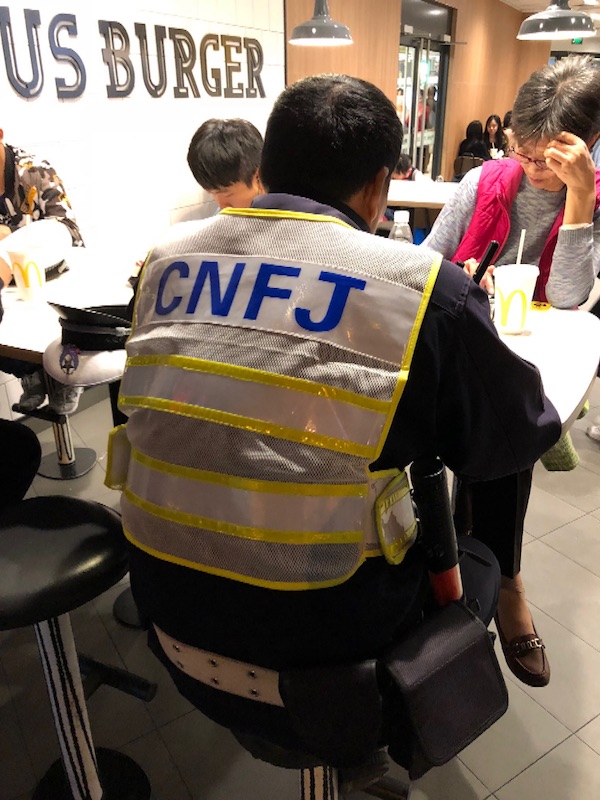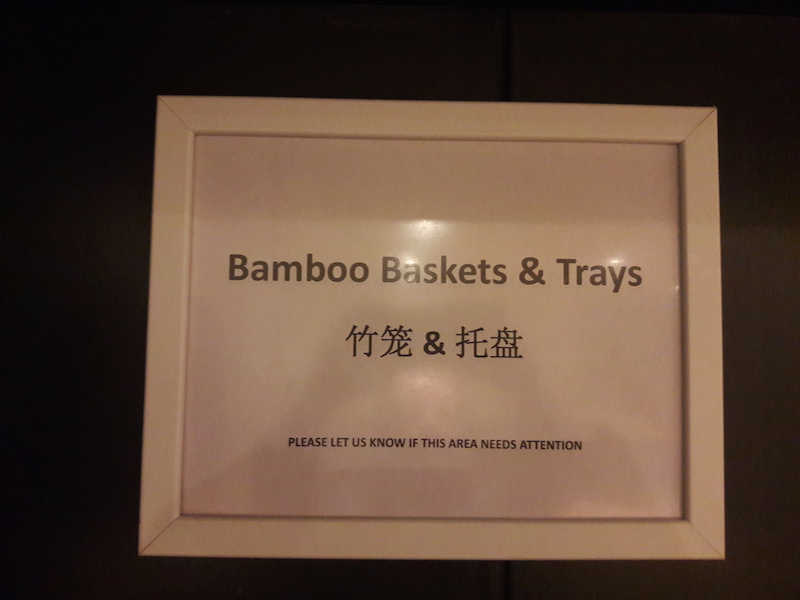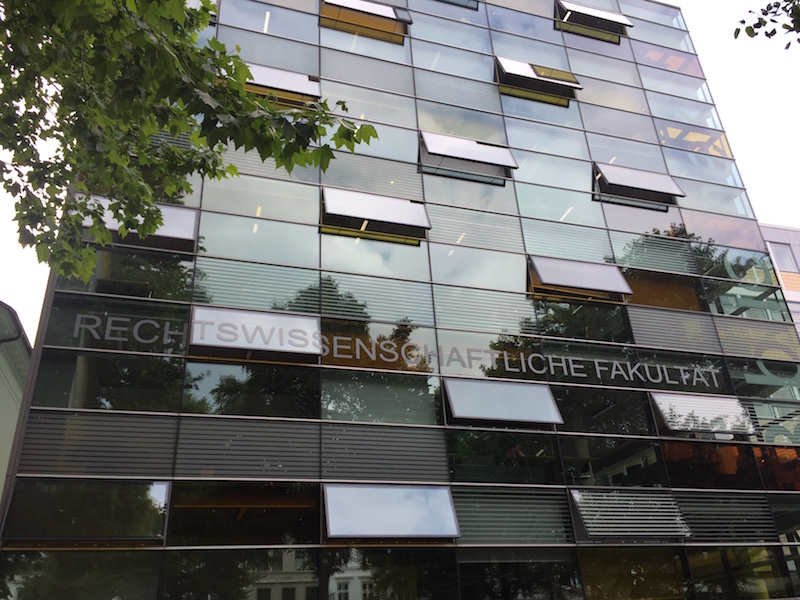Archive for Borrowing
November 15, 2018 @ 10:55 am· Filed by Victor Mair under Borrowing, Etymology, Language and food, Transcription
Earlier this week (11/12/18), under the rubric "Of knots, pimples, and Sinitic reconstructions", we discussed the origins and meaning of the fascinating Sinitic word "geda" ("pimple; knot; lump"). That, in turn, was prompted by our initial acquaintance with "geda" in "Too hard to translate soup" a couple of months before (9/2/18). After considering a possible source in Indo-European, Turkic, Tungusic, and Mongolic, there seemed to be a bit of momentum in favor of the last named family.
Since "geda" first appeared in a significantly large number of citations in written Sinitic during the Mongol Yuan Dynasty (1271-1368) about a thousand years ago, it was thought advisable to look at an earlier stage of Mongolic rather than simply referring to modern Mongolian forms. So I thought of asking Daniel Kane, a rare specialist in Khitan, which is generally considered to be a Para-Mongolic language, whether he had any thoughts on the matter.
Read the rest of this entry »
Permalink
November 12, 2018 @ 3:47 pm· Filed by Victor Mair under Borrowing, Lexicon and lexicography, Morphology
Poster in Saigon:

(Source)
Read the rest of this entry »
Permalink
November 12, 2018 @ 3:32 pm· Filed by Victor Mair under Borrowing, Etymology, Morphology, Phonetics and phonology, Semantics, Writing systems
A couple of months ago, we talked about gēda 疙瘩, which is one of those very cool, two syllable Sinitic words, neither of whose syllables means anything by itself (i.e., not only is it a disyllabic lexeme, it is also a disyllabic morpheme). Furthermore, gēda 疙瘩 is highly polysemous, with the following meanings: "pimple; knot; swelling on the skin; lump; nodule; blotch; a knot in one's body or heart (–> hangup; problem; preoccupation)".
See "Too hard to translate soup" (9/2/18).
Read the rest of this entry »
Permalink
November 10, 2018 @ 3:21 pm· Filed by Victor Mair under Borrowing, Language and food, Language and literature, Translation
Bill Benzon spotted this on Facebook:

Read the rest of this entry »
Permalink
November 3, 2018 @ 8:12 pm· Filed by Victor Mair under Acronyms, Borrowing, Diglossia and digraphia, Writing systems
Here we go again. More Roman letters and English words on police and security guard uniforms in China (see below for some earlier posts). Here's a doozy:

Read the rest of this entry »
Permalink
November 1, 2018 @ 9:09 pm· Filed by Victor Mair under Borrowing, Etymology, Reconstructions
Pamela Kyle Crossley wonders:
Why, when mi– ma– words for “honey” are so widespread across Eurasia, do English speakers say “honey” instead of some modern form of medhu or meli (except when referring to mead, of course)? Turns out all the Germanic languages left the medhu theme early on, and instead went with variation of *hunaga, which they might originally have cut off from hunigcamb. It sort of suggests that these Germans first encountered honey as imported in combs or frames, not as if they were extracting it from the bees themselves.
Read the rest of this entry »
Permalink
October 29, 2018 @ 10:47 am· Filed by Victor Mair under Borrowing, Etymology, Reconstructions
I used the expression "take a gander" in something I wrote this morning. Curious about its origin, I found this:
"Where Did the Phrase 'Take a Gander' Come From?" (Today I Found Out [9/22/12])
This is an interesting, informative article, from which I learned much, including the PIE root for "goose", and the fact that geese can fly as high as 30,000 feet!
Read the rest of this entry »
Permalink
October 18, 2018 @ 8:45 pm· Filed by Victor Mair under Borrowing, Etymology
Two years ago, I wrote a post about the Chinese expression "'Add oil'" (9/13/16) (cf. the comments to "Non-translation" [7/24/16]). In that post, I mentioned:
I remember way back when I was in high school (in the 50s), the cheerleaders used to tell their team to "step on the gas". So the concept of ga1yau4 / jiāyóu 加油 ("add oil / gas") was already out there.
In a personal note, Chau Wu adds:
To echo what you said, I remember I also used the phrase 加油 when I was in elementary school (late 1940s – early 50s), both in Mandarin and Taiwanese.
Read the rest of this entry »
Permalink
September 22, 2018 @ 12:51 pm· Filed by Victor Mair under Borrowing, Language and food
When I was in Hamburg, Germany a few months ago, I was pleasantly surprised to come upon a pastry shop that sold egg tarts warm out of the oven. They were just divine! I think they were called pastéis de nata from the term used for them in Portugal, which seems to be the homeland (or one of the homelands) of this heavenly dessert. Here the word pastéis is translated into English as "pastels", but it's something altogether different from the art medium, and it has a broad spectrum of manifestations as different types of pies and cakes.
Read the rest of this entry »
Permalink
September 15, 2018 @ 8:17 am· Filed by Victor Mair under Borrowing, Language and culture, Language and music
From Charles Belov:
This song turned up on my Apple Music new music playlist. Imagine my surprise when, in the middle of this Balkan-language (Croatian, I think, the page mentions "hrvatsko") pop/rock song, Mandarin hip-hop turned up.
https://www.youtube.com/watch?v=F43_89ncQ-I
"Mladen Burnać (feat. Rock) – Džaba Džaba"
Read the rest of this entry »
Permalink
August 9, 2018 @ 10:03 pm· Filed by Victor Mair under Borrowing, Diglossia and digraphia, Punctuation, Writing systems
From Caitlin Schultz:
I was eating at a place called Yaso Tangbao in Midtown Manhattan recently and snapped these photos of Chinese characters and ampersands. I thought it was unusual!

Read the rest of this entry »
Permalink
June 25, 2018 @ 11:47 pm· Filed by Victor Mair under Borrowing, Etymology, Lexicon and lexicography, Linguistic history, Names, Signs
I'm in Hamburg for lectures and meetings this week.
The first day I was here, in the afternoon I went out for a walk. After taking about 50 steps from the front door of my hotel, I saw this lettering on the glass facade of a nearby building:

Read the rest of this entry »
Permalink





